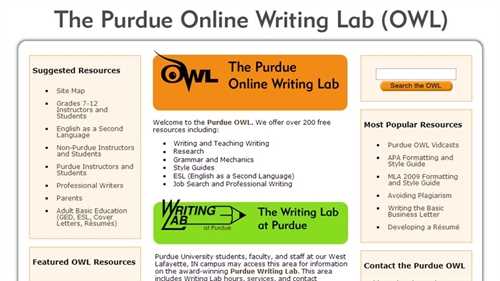1. Introduction
The cost of education can be a significant burden for many students. To alleviate this financial strain, Purdue University offers a Work-Study Program that allows students to earn money while gaining valuable work experience. In this article, we will explore the Purdue Work-Study Program in detail, including its benefits, eligibility criteria, application process, and how students can balance work and academics effectively.

2. What is the Purdue Work-Study Program?
The Purdue Work-Study Program provides part-time employment opportunities for eligible students, both on and off-campus. It is designed to help students cover their educational expenses while gaining practical skills and experience in their chosen fields.
3. Benefits of the Purdue Work-Study Program
The Purdue Work-Study Program offers several benefits to students:
- Financial Assistance: Work-study earnings can help offset the costs of tuition, textbooks, and living expenses.
- Practical Experience: Students gain valuable work experience related to their academic interests, enhancing their resumes and future job prospects.
- Skill Development: Work-study positions often provide opportunities for students to develop transferable skills such as communication, teamwork, and problem-solving.
- Flexible Schedule: Work-study jobs are typically designed to accommodate students’ class schedules, ensuring they can balance work and academics effectively.
- Networking Opportunities: Students can network with professionals and build connections within their field of interest, setting the stage for future career opportunities.
4. Eligibility for the Purdue Work-Study Program
To be eligible for the Purdue Work-Study Program, students must meet certain criteria:
- Enrolled at Purdue University as a degree-seeking student.
- Demonstrate financial need based on the information provided in the Free Application for Federal Student Aid (FAFSA).
- Maintain satisfactory academic progress.
- Be a U.S. citizen or an eligible non-citizen.
It’s important to note that eligibility requirements may vary, and students are encouraged to check with the Purdue University financial aid office for specific details.
5. Applying for the Purdue Work-Study Program
To apply for the Purdue Work-Study Program, students should follow these steps:
- Complete the FAFSA: The first step is to fill out the Free Application for Federal Student Aid (FAFSA) to determine financial need and eligibility for federal student aid programs, including work-study.
- Indicate Interest: On the FAFSA form, students should indicate their interest in the work-study program by answering relevant questions about employment.
- Receive Financial Aid Offer: Once the FAFSA is processed, students will receive a financial aid offer from Purdue University, which may include work-study funds.
- Accept Work-Study Offer: Review the financial aid offer and accept the work-study portion if interested in participating.
- Find a Work-Study Job: Students can explore available work-study positions by visiting the Purdue University job board or contacting the career services office.
6. Types of Work-Study Jobs at Purdue
The Purdue Work-Study Program offers a wide range of job opportunities for students. These jobs can be categorized into two main types:
On-Campus Work-Study Jobs
On-campus work-study jobs are positions available within Purdue University. These jobs are conveniently located on campus and may include positions in departments, libraries, research labs, administrative offices, and more. On-campus work-study jobs often provide opportunities for students to work in areas related to their academic interests, allowing them to apply classroom knowledge to real-world situations.
Off-Campus Work-Study Jobs
Off-campus work-study jobs are community-based positions that give students the chance to work with nonprofit organizations, government agencies, or local businesses. These jobs allow students to contribute to the local community while gaining valuable experience outside the university environment. Off-campus work-study jobs offer a broader perspective and provide students with opportunities to develop skills in different settings.
7. Work-Study Earnings and Financial Aid
Hourly Wages and Work Hours
The hourly wage for work-study positions at Purdue University varies depending on the job responsibilities and the student’s skills and experience. The wages are typically competitive and meet at least the federal minimum wage requirement. The number of work hours a student can work depends on their class schedule, availability, and financial aid award.
Impact on Financial Aid Packages
Earnings from work-study jobs are not deducted directly from a student’s financial aid package. The wages earned are considered as income and may be subject to taxes. However, the income earned through work-study is not counted as heavily against financial aid eligibility as other types of income.
8. Balancing Work and Academic Commitments
Balancing work-study with academic commitments requires effective time management and organization. Here are some tips to help students find a balance:
- Prioritize Coursework: Make sure to prioritize academic responsibilities and allocate sufficient time for studying and completing assignments.
- Create a Schedule: Plan and schedule work hours, study time, and personal commitments to ensure a well-balanced routine.
- Communicate with Supervisors and Professors: If there are conflicts between work and academic commitments, communicate with supervisors and professors in advance to discuss potential solutions.
- Seek Support: Utilize resources such as academic advisors, tutors, and career services to help manage both work and academic responsibilities effectively.
9. Conclusion
The Purdue Work-Study Program offers a valuable opportunity for students to earn money while gaining practical experience and developing important skills. Through on-campus and off-campus employment, students can not only alleviate some financial burdens but also enhance their academic and professional journeys. By understanding the eligibility criteria, application process, and available job options, students can make the most of the Purdue Work-Study Program.
FAQs (Frequently Asked Questions)
- How do I know if I am eligible for the Purdue Work-Study Program?
- How can the Purdue Work-Study Program benefit me?
- Can I work both on-campus and off-campus through the program?
- How many hours can I work as part of the Work-Study Program?
- Will participating in the Work-Study Program affect my financial aid package?
 Scholarships Tips Learn Doctoral Scholarships Now
Scholarships Tips Learn Doctoral Scholarships Now